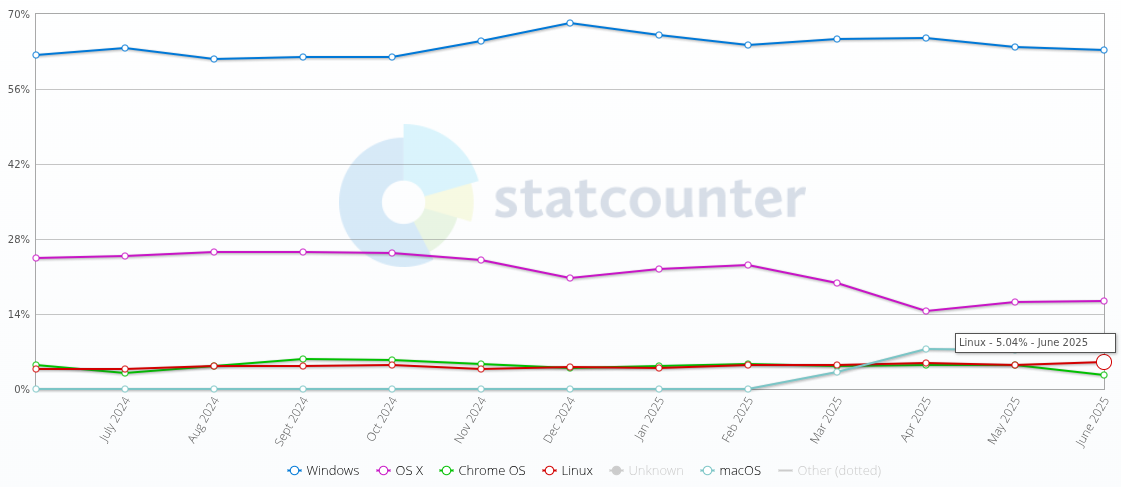
For years, the notion of a "Year of the Linux Desktop" (YOLD, as a shorthand, maybe?) has been a hopeful expression for Linux enthusiasts around the world. Every time Linux, or more specifically, Linux Desktop, makes a notable leap, calls for YOLD start echoing across the internet.
But, then again, many agree that YOLD (okay, I will stop) is less about a specific year but more about when you, the person using a distro, feel it. It's that moment when your Linux setup finally clicks for everyday use and you don't want to go back to other OSes anymore.
And as it turns out, many people are getting their own version of YOLD (I really will stop now) in the U.S., because something pretty interesting has happened.
Linux Desktop is Gaining Market Share

Linux has crossed the 5% mark in the U.S. desktop market for the first time ever. According to StatCounter's Global Stats for June 2025, Linux now holds 5.04% of the desktop market, surpassing the "Unknown" category, which accounts for 4.76%.
This increase was expected, partly due to the upcoming Windows 10 end-of-life, which leaves many users with older hardware stuck choosing between upgrading to Windows 11, which isn’t friendly to older machines, or searching for alternatives.
On top of that, Microsoft’s recent aggressive push toward AI-enabled features like CoPilot has sparked mixed reactions, with many feeling that the changes worsen privacy concerns.
If you ask me, I am glad to see this. More people should switch to Linux because the various distributions have become incredibly accessible. For anyone who doesn’t need specialized software and just wants a reliable system for everyday use and gaming, a Linux distro is definitely the way to go.
If you want to stay on top of how Linux desktop is doing, check out our monthly market share updates. We track the latest numbers and trends, so you always know where things stand.

- Even the biggest players in the Linux world don't care about desktop Linux users. We do.
- We don't put informational content behind paywall. Your support keeps it open for everyone. Think of it like 'pay it forward'.
- Don't like ads? With the Plus membership, you get an ad-free reading experience.
- When millions of AI-generated content is being published daily, you read and learn from real human Linux users.
- It costs just $2 a month, less than the cost of your favorite burger.
Become a Plus Member today and join over 300 people in supporting our work.











